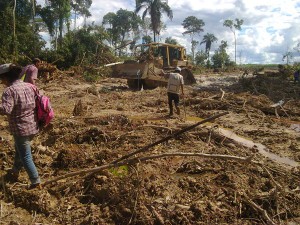The Economic Commission for Africa (ECA) says 65 per cent of Africa’s arable land is degraded, costing it $68 billion annually in lost productivity.

Dr Hanan Morsy, the Deputy Executive Secretary and Chief Economist, United Nations Economic Commission for Africa (ECA), said this in a statement on posted the commission’s website.
Morsy spoke at the I0th Special session of the African Ministerial Conference on the Environment.
She said the event’s theme, “Raising Africa’s Ambition to Address land degradation, desertification, and drought,” was not just timely, it was vital.
“The stakes are high. Climate change is costing African economies up to 15 per cent of Gross Domestic Product (GDP) annually.
“Governments are diverting up to nine per cent of their budgets to cope with extreme weather.
“It is also grappling with debt distress, facing difficult trade-offs between climate action and meeting critical development needs, such as health and education.”
According to Morsy, deforestation rates are twice the global average, further undermining our agricultural output and ecosystem services. We must act now.
“Programmes like reducing emissions from deforestation and forest degradation in developing countries (REDD+) which seek to reduce emissions from deforestation are crucial, but we need more.
“Carbon markets must be fair, with prices that reflect the true value of our efforts.
“Currently, African carbon credits are undervalued, often less than 10 dollars per tonne, compared to 120 dollars in more mature markets,” she said.
According to Morsy, balancing carbon credit initiatives with the needs of communities, including their access to forest resources for sustainable development is key.
The deputy executive secretary said that developing a high-integrity African carbon market that unlocked our potential and ensured equitable pricing for all was a strategic pripriority.
The economist said climate change, pollution, and biodiversity loss were intertwined crises that threaten our very existence.
She said these were not just environmental issues; they were economic and social challenges that threaten the very fabric of our societies and demand our immediate and united action.
Morsy said that the ECA was committed to supporting member states in addressing climate change, land degradation and deforestation through various initiatives.
“The challenges we face are immense, but so are the opportunities for Africa to lead with innovative, sustainable solutions.
“By leveraging our collective strengths and deepening our collaboration, we can protect our ecosystems, empower our communities, and drive sustainable development.
“This path forward will require commitment both in resources, policy, and action.
“Together, we can build a resilient future for Africa for our children and future generations. Let us transform our ambition into action,” Morsy said.
By Lucy Ogalue
